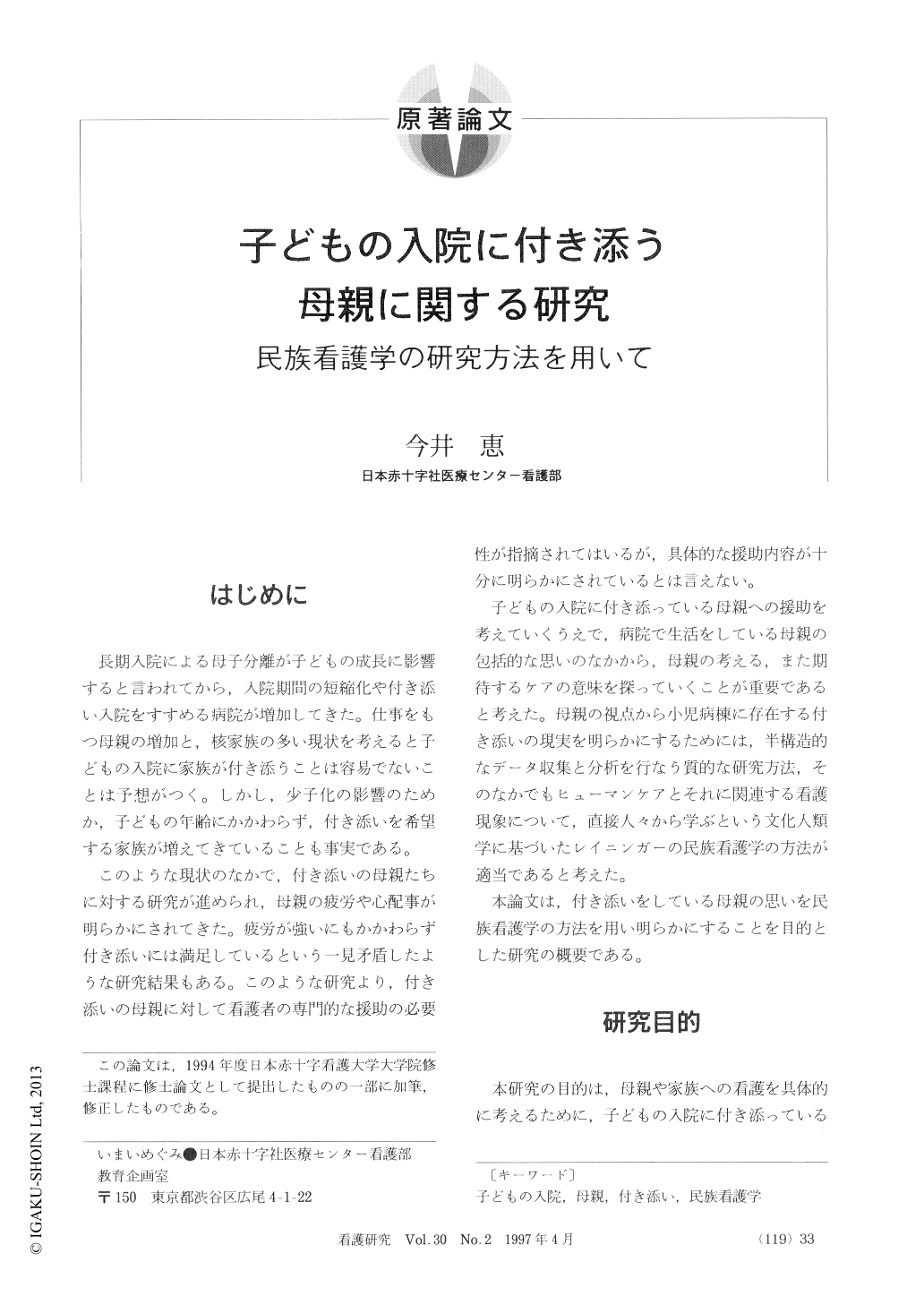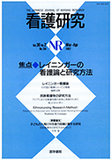Japanese
English
- 有料閲覧
- Abstract 文献概要
- 1ページ目 Look Inside
- サイト内被引用 Cited by
はじめに
長期入院による母子分離が子どもの成長に影響すると言われてから,入院期間の短縮化や付き添い入院をすすめる病院が増加してきた。仕事をもつ母親の増加と,核家族の多い現状を考えると子どもの入院に家族が付き添うことは容易でないことは予想がつく。しかし,少子化の影響のためか,子どもの年齢にかかわらず,付き添いを希望する家族が増えてきていることも事実である。
このような現状のなかで,付き添いの母親たちに対する研究が進められ,母親の疲労や心配事が明らかにされてきた。疲労が強いにもかかわらず付き添いには満足しているという一見矛盾したような研究結果もある。このような研究より,付き添いの母親に対して看護者の専門的な援助の必要性が指摘されてはいるが,具体的な援助内容が十分に明らかにされているとは言えない。
The purpose of this study was to discover the views of mothers with hospitalized children. Leininger's mini-ethnonursing method was used to explore and describe the views of Japanese mothers.
A children's unit of a general hospital in Kanto in Japan was used for the field research. Six mothers who were with their hospitalized children were selected as the key informants. And 14 staff members on the unit including nurses, physicians, and nurse aides, were selected as the general informants. From nearly 140 days of observation-participation and reflection (Leininger enabler), the following themes were dicovered;
Theme 1: The mothers wanted to be close to their children (like tied to their navel string) and to be the only persons who could stay continually with their hospitalized child.
Theme 2: The mothers tried to do everything by themselves, because they thought nurses were too busy and, therefore, they could not leave their children alone. They still wanted the nurses to help the child when they needed a long-term care at the hospital.
Theme 3: The mothers expected an assurance of the life of their child and wanted an effective treatment from physicians, but held there was no one to consult fully with about their children's illness.
Theme 4: Mothers searched companions who had the similar feelings and views, but didn't ask about their children's diagnosis.
Theme 5: The mothers believed they had limited knowledge about prevention of an infection, but they tried to prevent by infection.
Theme 6: The mothers were unaware of their fatigue and neglected to rest, sleep, and eat properly while child was hospitalized.
Theme 7: The mothers did not expect their husbands to stay with their children, but expected their own mothers to help them.
Theme 8: The mothers believed that nobody could explain and advise them about their daily life at the hospital, the medical systems and to reassure them.
A recurrent theme was that “mothers took for granted that they must stay with” or “hold out”for their hospitalized child.

Copyright © 1997, Igaku-Shoin Ltd. All rights reserved.


